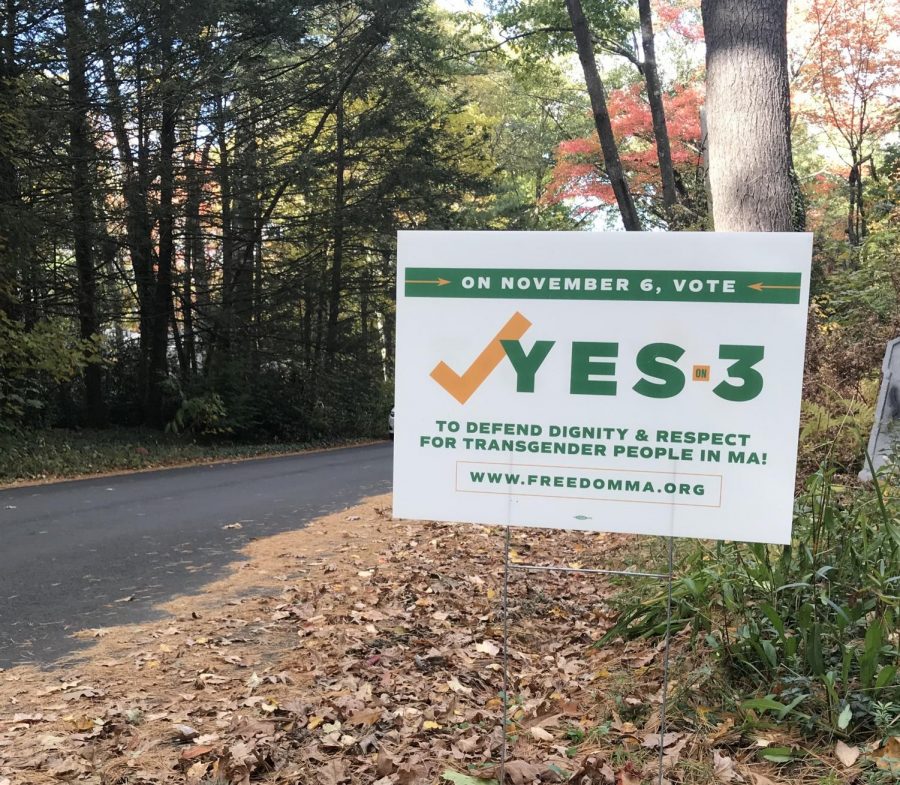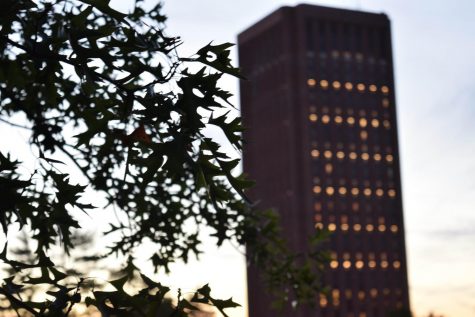What you need to know about Massachusetts ballot Question 3
A “Yes on 3” sign on an Amherst lawn.
AMHERST — Massachusetts voters will have three important ballot measures to consider on Nov. 6. The third ballot question is centered around an existing 2016 law which “prohibits discrimination on the basis of gender identity in places of public accommodation.”
These public areas are defined as any place that “solicits the patronage of the general public,” including hotels, stores, hospitals and sports facilities.
In addition to various LGBTQ rights groups, Massachusetts Governor Charlie Baker has also pledged to vote “Yes” and keep the existing law in place.
Baker signed the original anti-discrimination bill into law in 2016. With the law in jeopardy two years later, Baker promised continuing support for transgender rights in an op-ed for New England’s largest LGBTQ newspaper, “The Rainbow Times.”
Massachusetts, Baker said in the op-ed, must continue to build on “its historic role as a pioneer in ensuring equality for LGBTQ Americans.” He explained how he’s been “troubled” by the efforts to repeal the law and urged citizens of the Commonwealth to vote “Yes,” in order to reject discrimination against any LGBTQ Americans.
Keep MA Safe, a group behind many “No on 3” ads, has argued the law’s description of gender identity is too “vague” and poses a threat to women and children in the state. The campaign has detailed how predators may “claim ‘confusion’ about their gender as a cover for their evil intentions.”
Debby Dugan, chairwomen of Keep MA Safe, said the law is “ripe for abuse by criminals and convicted sex offenders,” in a Boston Globe in article in August.
Despite vocal efforts to publicize the debate on both sides, Massachusetts residents appear to be unclear on the meaning of their Question 3 vote.
A UMass Lowell-Boston Globe poll found that roughly a quarter of respondents “gave inconsistent answers on their views,” when asked to explain their decision on a “Yes” or “No” vote. Voters appear to be largely in favor of voting “Yes,” with 74-percent of poll respondents saying they are against repealing the law.
What does each vote mean?
Yes:
A “Yes” vote would keep in place the current law, which prohibits discrimination on the basis of gender identity in places of public accommodation.
No:
A “No” vote would repeal this provision of the public accommodation law.
Email Matthew at [email protected] or follow him on Twitter @matt12dipesa.











